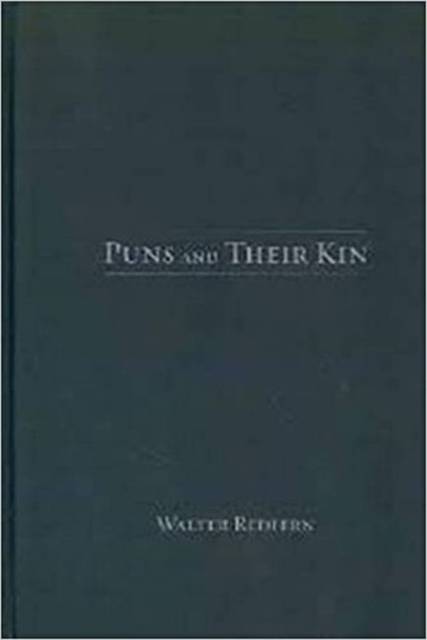
- Retrait gratuit dans votre magasin Club
- 7.000.000 titres dans notre catalogue
- Payer en toute sécurité
- Toujours un magasin près de chez vous
- Retrait gratuit dans votre magasin Club
- 7.000.0000 titres dans notre catalogue
- Payer en toute sécurité
- Toujours un magasin près de chez vous
Description
Stimulating, challenging, engaging, dauntingly well informed and wide-ranging, Professor Redfern's revised book on puns offers massive returns both to the specialist researcher and the interested general reader. Taking his examples back to ancient literatures, but drawing especially on English, American and French cultures (popular and high), he defies the way in which the pun has so often been denigrated as a poor relation within the family of humorous modes, and his sparkling and inventive prose fully justifies that approach. Every page offers original examples amid material from his sources, tellingly examined but without the dogmatic imposition of a preconceived (and therefore, perhaps, inadequate) theory. That exclusion, criticised by earlier reviewers, perceptibly enhances the chapters he presents, which cover, among other matters, the psychology and psychopathology of word-play, the history of punning (particularly enlightening on the English 18th and 19th centuries, though Hugo, Flaubert and others also figure strongly), how punning links with etymology, anagram, neologism and rhetorical tropes such as metaphor, irony, litotes and syllepsis, the commercialisation of puns in the advertising industry and their exploitation by the press, and an intriguing extension of wordplay into the visual as developed in film and TV, as well as by artists like Arcimboldo and Duchamp. "Refreshingly but not sarcastically irreverent towards lumières such as Derrida, Lacan, Freud and Bergson, Redfern prefers to appeal to his readers rather than to indoctrinate then, and he certainly will not oversell his subject or his product. Finnegans Wake, he suggests, may well go too far in its unrelenting word-spinning, while his own book is described as "a rough draft in more senses than one" ..." Professor J. Parkin, School of English, Bristol University (United Kingdom)
Spécifications
Parties prenantes
- Auteur(s) :
- Editeur:
Contenu
- Nombre de pages :
- 320
- Langue:
- Anglais
Caractéristiques
- EAN:
- 9781936320899
- Date de parution :
- 15-09-14
- Format:
- Livre relié
- Format numérique:
- Genaaid
- Dimensions :
- 155 mm x 231 mm
- Poids :
- 566 g

Les avis
Nous publions uniquement les avis qui respectent les conditions requises. Consultez nos conditions pour les avis.






